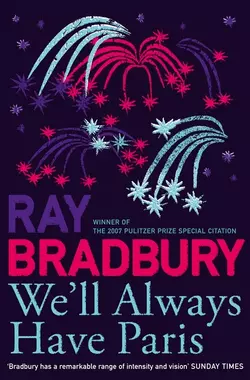We’ll Always Have Paris

Рэй Дуглас Брэдбери
Тип: электронная книга
Жанр: Современная зарубежная литература
Язык: на английском языке
Стоимость: 774.44 ₽
Статус: В продаже
Издательство: HarperCollins
Дата публикации: 16.04.2024
Отзывы: Пока нет Добавить отзыв
О книге: From one of the greatest living literary imaginations and the celebrated author of FAHRENHEIT 451 comes a collection of never-before-published effortlessly beautiful tales.Recently described in The Times as ′the uncrowned poet laureate of science fiction′ Ray Bradbury has won numerous awards including a Pulitzer Prize special citation in 2007 and an Emmy.In this new volume of never-before-published stories, follow a space shuttle crew as they voyage sixty million miles from home, discover what happens when a writer ′with the future′s eye′ believes his friend to be writing stories aboard a UFO, and listen in on a couple talking themselves backwards through time to the moment when they first held hands.This entertaining and gripping collection is a treasure trove of Bradbury gems – eerie and strange, nostalgic and bittersweet, searching and speculative – to delight readers of all ages.